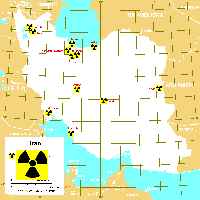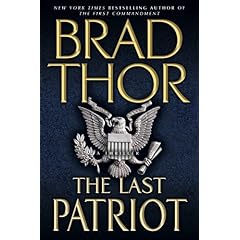Are American Jews Too Powerful? Not Even Close.
Are American Jews Too Powerful? Not Even Close.
By Ruth Wisse
Sunday, November 4, 2007; Page B03
These days, it's becoming downright chic to hint forebodingly that America's Jews are just too powerful. But whether it's the political scientists John J. Mearsheimer and Stephen M. Walt or former president Jimmy Carter, those who accuse modern Jews of having excessive clout are getting it precisely backward. In the real world, Jews have too little power and influence. They also have too little self-confidence about defending themselves.
Consider a basic paradox. Even anti-Semites often give Jews credit for having exceptional intelligence. Self-congratulatory Web sites reckon that Jews, who make up about 0.2 percent of the world's population, have been awarded more than 160 Nobel Prizes. But if Jews are so smart, why do 22 Arab League countries account for a tenth of the Earth's land surface while the Israelis struggle to secure a country that is 1/19th the size of California? If Jews are so powerful, why does Israel attract twice as many venture-capital investments as all of Europe, even while it's the only one of the United Nations' 192 member states that has been charged with racism for the crime of its existence? How powerful is that?
TOOLBOX
Resize Text
Save/Share + DiggNewsvinedel.icio.usStumble It!RedditFacebook Print This E-mail This
COMMENT
washingtonpost.com readers have posted 17 comments about this item.
View All Comments »
POST A COMMENT
You must be logged in to leave a comment. Log in Register
Discussion PolicyDiscussion Policy CLOSEComments that include profanity or personal attacks or other inappropriate comments or material will be removed from the site. Additionally, entries that are unsigned or contain "signatures" by someone other than the actual author will be removed. Finally, we will take steps to block users who violate any of our posting standards, terms of use or privacy policies or any other policies governing this site. Please review the full rules governing commentaries and discussions. You are fully responsible for the content that you post.
Who's Blogging?
» Links to this article
In fact, there's an excellent historical reason why Jewish intellectual achievement sits alongside political weakness. Simply put, Jewish achievement in other areas has come at the expense of political strength, and the strange relationship of Jews and power has made them history's favorite prey. Centuries of survival in other people's lands prevented Jews from achieving full acceptance -- and access to the levers of government. Some individual Jews may have lived large, but the Jewish people as a whole lived on sufferance, afraid to antagonize those from whom they sought tolerance.
These questions mean a lot to me. I'm often asked how I, a teacher of Yiddish literature, came to write about politics. But remember that the Yiddish language, developed by European Jews over almost a thousand years, was practically erased along with them in a mere six, 1939-45. So studying Yiddish literature, almost by definition, concentrates the mind on Jewish political disabilities.
When Jerusalem was crushed by Rome in the year 70 -- so brutally that, according to the historian Josephus, "no one visiting the spot would believe it had once been inhabited" -- some Jews stayed on, but the vast majority made their homes in foreign lands. For more than 18 centuries, Jews survived as a nation without three basic staples of nationhood: land, central government and independent means of self-defense.
Instead, Jews turned to strategies of accommodation. They provided goods and services to their gentile neighbors in return for being allowed to stay in the country. They became money-lenders, bankers, minters, craftsmen, midwives -- trades that gentiles would let them perform and that allowed Jews to observe their calendar, customs and religious laws. But they had no independent way to protect their achievements.
Unlike their Christian and Muslim overlords, Jews had good reasons to avoid irking those from whom they sought acceptance. The German poet Heinrich Heine, who called conversion to Christianity his "ticket of admission" to European culture, likened Jews to a prince whom "black magic" had transformed into a dog: "All week long he goes on scraping/Through life's excrement and sweepings/To the mockery of jeers of street boys." Only on Friday evenings, while ushering the Sabbath into his own home, does the dog resume its human shape. Heine saw that the humiliation of the Jews was offset by a moral serenity, and that their moral serenity was offset by acute political vulnerability.
The creation of the state of Israel in May 1948, after the carnage of the Holocaust, was supposed to change all this. But the newly formed Arab League made opposition to Israel the only common goal of its otherwise quarrelsome membership. The new United Nations, tribune of emerging post-colonial nations, did not protect Israel from assault, and over time the world body became a party to the Arab League's war against Jewish statehood.
Of course, Israel now had an army, and a formidable one at that. But the Israel Defense Forces did not change the Jews' existential condition as a minority; Israel was now a minority among the nations, contending with Arab states that sought to dominate or destroy it. Israel still lived by strategies of accommodation, trying to supply its neighborhood with useful services and goods such as medical, agricultural and technological know-how. In the 1990s, utopians such as Shimon Peres, now Israel's president, hailed a "new Middle East" of economic and political cooperation. When Peres and Israel's late prime minister Yitzhak Rabin installed Yasser Arafat as the head of a Palestinian proto-state, they began another doomed Jewish political experiment -- making Israel, as best I can figure, the first country in the world ever to arm its enemy in hopes of gaining security.
What about American Jewry? Mearsheimer and Walt allege that a Jewish cabal dictates U.S. policy in the Middle East, helping Israeli interests and hurting U.S. ones. So have American Jews really begun to mobilize effectively to protect Israel, or are people again overstating Jewish power and its supposed dangers?
Consider the halls of ivy where, if anywhere, the intellectual firepower of Jews might be expected to be on display in defense of Jewish interests. At Columbia University, the late Edward Said used his authority as a teacher of comparative literature to apologize for Palestinian terrorism and condone Arab violence against Israel, including, in one instance, by personal example. (In 2000, a photographer for a French news agency snapped him in southern Lebanon tossing a rock toward an Israeli position.) Much of the Jewish professoriat looked the other way or signed his petitions.
Elsewhere in the academy, Jewish professors themselves lead the anti-Israel barrage. In fact, Mearsheimer and Walt expected Jewish organizations to sponsor their talks and complained of "censorship" when the groups did not. Clearly, there is nothing quite as fun -- or as lucrative -- as baiting Jews.
Read rest of article at:
http://www.washingtonpost.com/wp-dyn/content/article/2007/11/02/AR2007110201659.html
Technorati - 'palestinian' terrorism 'palestinians' Israel IDF 'palestinian' Apartheid Zionism Anti Israel bigotry Islamic Apartheid War on terror Terror victims 'palestinian' propaganda jihad Genocide bombing Anti Israel bias Arab racism Jews IDF Anti Israel racism Islamofacsism Conflict Israel "Palestine" "Palestinians" Israelis Civilwar Arabs MuslimsJihad Terrorism Fatah non-Muslims Christians Hamas Gaza Terrorism Islamofascism Jerusalem Muslims Oil lobby Islamic lobby Arab lobby Lobbies Lobby Wahabbi Lobby
Labels: AIPAC, Anti Israel Bigotry, anti semitism, Arab lobby, Arab Racism, Conspiracy theories, foreign policy, Islamo Arab lobby, Islamofascism, Jews, Lobby, power, radical left, US

































0 Comments:
Post a Comment
<< Home